Category: Biology
-

Shady Amin, New York University Abu Dhabi – Chemical Signaling
How do organisms that don’t speak communicate with one another? Shady Amin, assistant professor of biology at NYU Abu Dhabi, discusses chemical signaling. During his doctoral studies, Shady studied iron acquisition mechanisms in marine bacteria under the supervision of Dr. Carl Carrano. He showed that iron-binding ligands (a.k.a. siderophores) produced by algal-associated bacteria provided algae with…
-
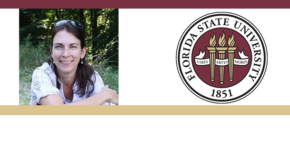
Emily DuVal, Florida State University – Avian Au Pairs
Humans aren’t the only species to use an au pair. Emily DuVal, associate professor in the department of biological science at Florida State University, discusses how some birds can help raise the young of other bird species. Emily DuVal is an associate professor of Biological Science at Florida State University. She has spent more than…
-

Bonnie Baxter, Westminster College – Great Salt Lake and Life on Mars
On Westminster College Week: Want to go to Mars? Head to Utah. Bonnie Baxter, professor of biology, determines a unique feature Great Salt Lake could be a stand in for the red planet. Bonnie Baxter, Ph.D., is a professor of biology and director of Westminster’s Great Salt Lake Institute. She has spent two decades studying…
-
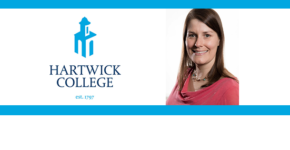
Stephanie Carr, Hartwick College – Microbes
Microbes are a rich area of study. Stephanie Carr, assistant professor of biology at Hartwick College, discusses thinking small to find big answers. Dr. Stephanie Carr is an assistant professor of biology at Hartwick College. As a microbiologist and a geochemist, Stephanie aims to understand how microorganisms impact our environment. Stephanie focuses on discovering how…
-
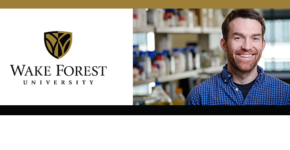
Matthew Fuxjager, Wake Forest University – Roll Snap Golden Manakins
A small bird is pushing the limits of muscle performance. Matthew Fuxjager, assistant professor of biology at Wake Forest University, explores how one bird helps itself with faster muscle movements. Dr. Matt Fuxjager is an Assistant Professor in the Biology Department at Wake Forest University. He received his MS from the University of North Carolina…
-
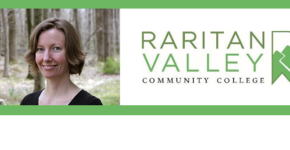
Karen Gaffney, Raritan Valley Community College – Race As A Social Construct
Is race a social construct? Karen Gaffney, professor in the English department at Raritan Valley Community College, discusses how race as a biological construct has flourished. Dr. Karen Gaffney is an English Professor at Raritan Valley Community College in NJ. She recently published Dismantling the Racism Machine: A Manual and Toolbox (Routledge, 2018), an accessible introduction to…
-
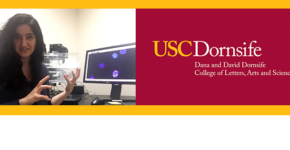
Irene Chiolo, USC Dornsife College of Letters, Arts and Sciences – First Responders In The Body
On USC Dornsife Week: Who are the first responders for damaged cells in your body? Irene Chiolo, assistant professor of biological sciences, looks into the body to find out. Irene Chiolo is an Assistant Professor of Biological Sciences with the USC Dornsife College of Letters, Arts and Sciences. She and her team investigate heterochromatin, the…
-
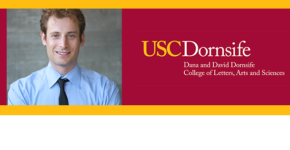
Daniel Benjamin, USC Dornsife College of Letters, Arts and Sciences – Genetics and Academic Achievement
On USC Dornsife Week: Do your genes decide the highest level of education you’ll receive? Daniel J. Benjamin, associate professor of economics, discusses this question. Daniel J. Benjamin’s research is in behavioral economics (which incorporates ideas and methods from psychology into economic analysis) and genoeconomics (which incorporates genetic data into economics). He is an Associate…
-
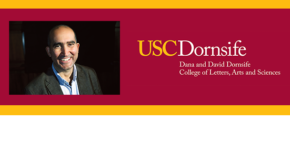
Moh El-Naggar, USC Dornsife College of Letters, Arts and Sciences – Microorganisms
On USC Dornsife Week: Not all big ideas are about big things. Moh El-Naggar, professor of physics and astronomy, discusses how something small could help us think big. Moh El-Naggar is the Robert D. Beyer Early Career Chair in Natural Sciences, and Professor of Physics, Biological Sciences, and Chemistry at the University of Southern California…
-
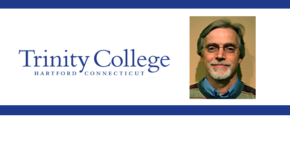
Dan Lloyd, Trinity College – Music As The Language of the Brain
On Trinity College Week: Does your brain speak in music? Dan Lloyd, professor of philosophy, discusses how repetition is shared between the language of music and our brains. Dan Lloyd wonders how our gray and squishy brains could be the location of the symphonic kaleidoscope of human consciousness. For centuries this question was the province…
